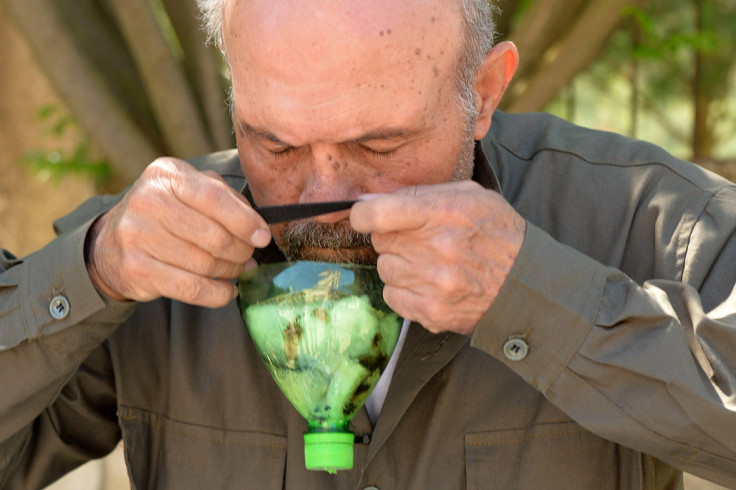Fresh allegations of chlorine gas attacks in Syria

The Syrian opposition coalition has accused President Bashar al-Assad's government forces of carrying out chlorine gas attacks on the northern Syrian province of Idlib on Monday 16 March.
Six people, all from the same family, died Monday night in northwest Syria after a government plane allegedly dropped a chlorine-filled bomb on a residential neighborhood, according to interviews with residents and accounts posted on social media by activists, as well as a report by the Syrian Observatory for Human Rights, a Britain-based monitoring group.
At least three children were killed in the alleged chlorine bomb attack carried out by the government forces, the Syrian opposition coalition said.
According to the Syrian Revolution General Commission's statement released Tuesday, the government air strikes targeted opposition-controlled villages of Sermin and Qminas villages.
Hospitals in the area were reportedly overwhelmed with dozens of people suffering from chlorine gas, the opposition coalition said, describing the attack as "massacre".
Published on social networks, a video also purportedly shows victims of the attack and scores of people receiving first aid at hospitals.
Chlorine gas floating through villages
The political opposition-in-exile, the Syrian National Coalition, who said it feared the death toll could rise because of lack of adequate medical aid in the area, called on the United Nations Security Council on Tuesday to ensure the enforcement of a resolution prohibiting Syria from using chemical weapons.
The air strike follows UN Security Council's recently adopted resolution on 6 March, which condemned the use of chlorine gas as chemical weapon in Syria.
The opposition has vehemently accused Assad's government of using chemical and toxic weapons against civilians during the ongoing civil war.
In May last year, opposition activists posted a video of what they said was chlorine gas floating through the streets of the village of Kfar Zeita, the first such footage of an alleged chemical weapon campaign by President Assad.
A similar incident in August 2013, allegedly carried out by the Assad regime, reportedly killed more than 1,400 civilians in the eastern suburbs of Damascus.
A UN-backed chemical weapons watchdog released evidence in January that the Syrian regime had employed chlorine gas.
However, Syrian government officials have denied the allegations, charging that the gas attacks were carried out by rebel forces.
Chlorine is a choking agent whose use as a chemical weapon dates back to World War One. It is banned under the 1997 Chemical Weapons Convention.
© Copyright IBTimes 2025. All rights reserved.






















